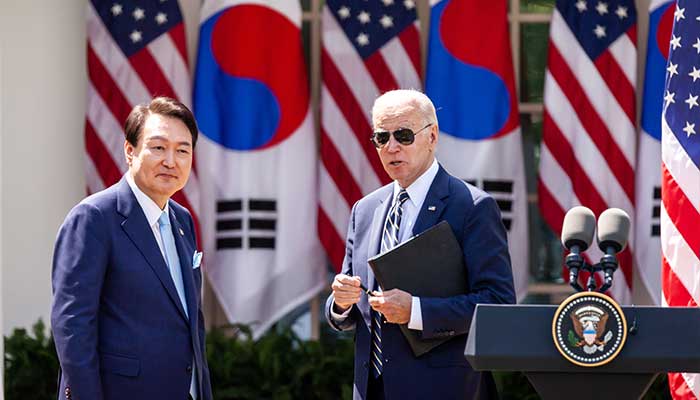The US and South Korea have reached a significant deal aimed at countering the nuclear threat posed by North Korea. The Washington Declaration outlines that the US will send nuclear-armed submarines to South Korea on a periodic basis and involve Seoul in its nuclear planning operations, while South Korea has agreed not to develop its own nuclear weapons. The treaty will strengthen the two countries’ cooperation in deterring a potential North Korean attack, according to US President Joe Biden.
The fear of the North Korean nuclear threat has been rising on both sides for years. The US has a treaty obligation to defend South Korea, and some South Koreans have expressed doubts over that commitment and urged their country to pursue their own nuclear programme.
Under the terms of the deal, the US will make its defence commitments more visible by sending a nuclear-armed submarine to South Korea for the first time in 40 years, along with other strategic assets, including nuclear-capable bombers. The two sides will also establish a Nuclear Consultative Group to discuss nuclear planning issues. South Korean politicians have long been pushing Washington to involve them more in planning for how and when to use nuclear weapons against North Korea.
Duyeon Kim, from the Centre for a New American Security, described the establishment of the Nuclear Consultative Group as a “big win” for South Korea, as it provides the increased involvement that the country has been seeking. However, the bigger question is whether this will quell the public’s anxieties. It does not offer a total commitment from the US that it would use nuclear weapons to defend South Korea if North Korea were to attack.
China, which is not pleased with the US’s stance, has warned against “deliberately stirring up tensions, provoking confrontation and playing up threats”. Meanwhile, President Biden said that the US was continuing efforts to get North Korea back to the negotiating table, despite Pyongyang ignoring numerous requests to talk without preconditions.
